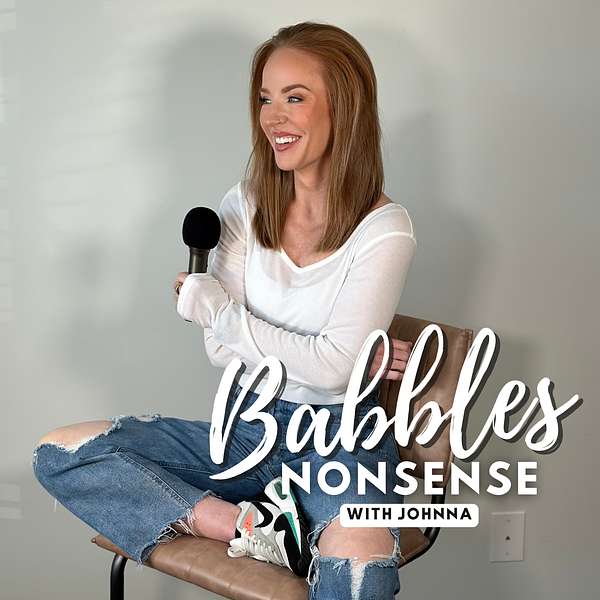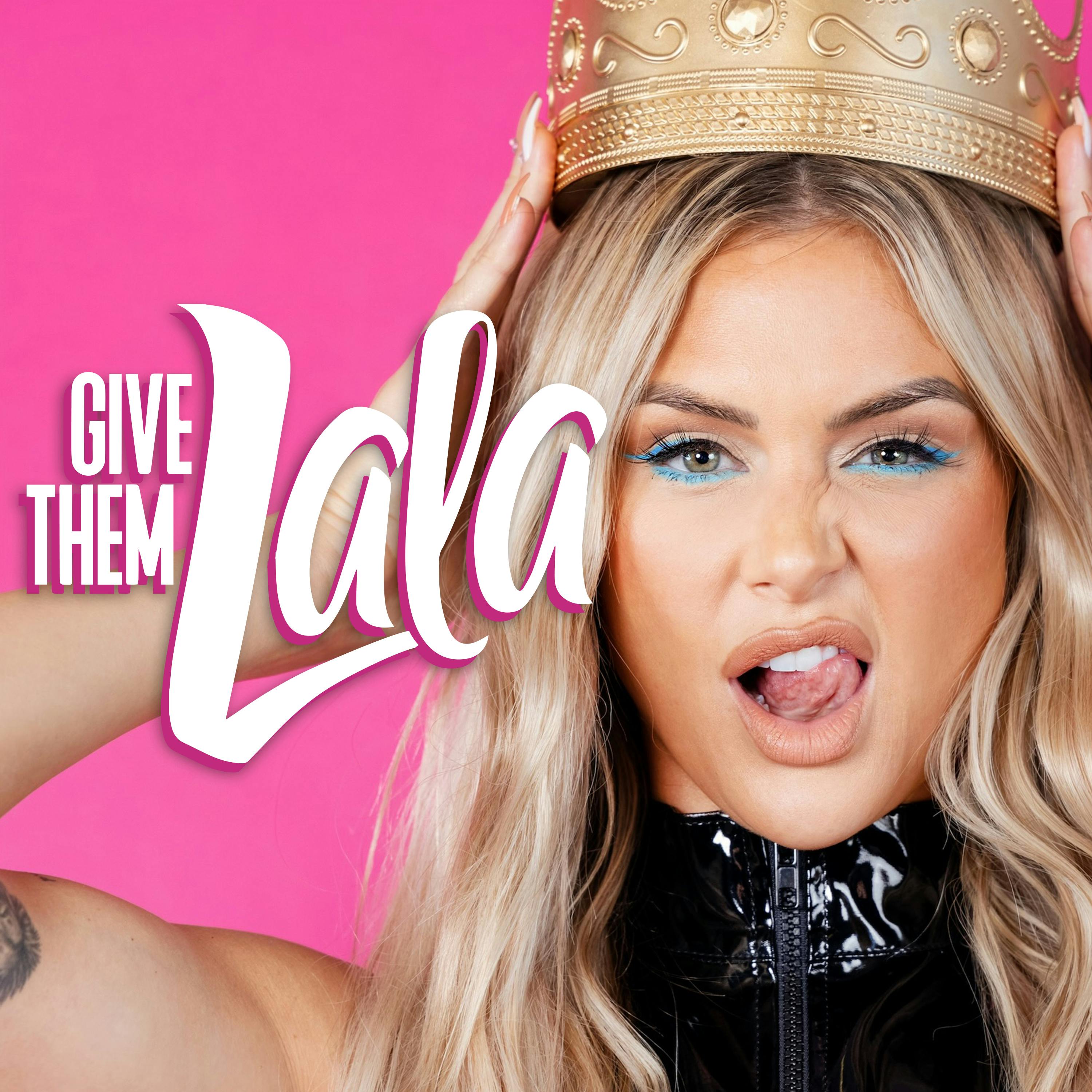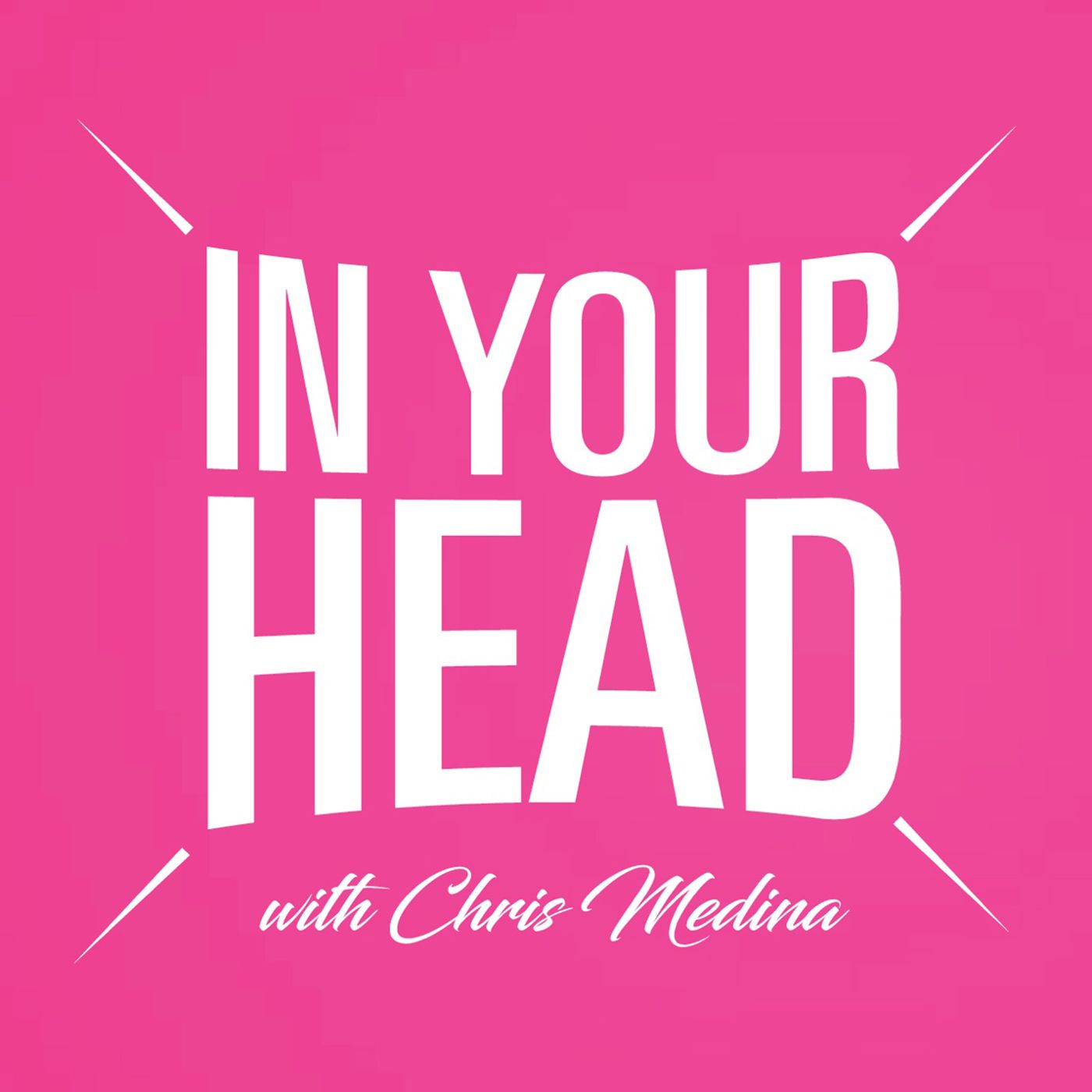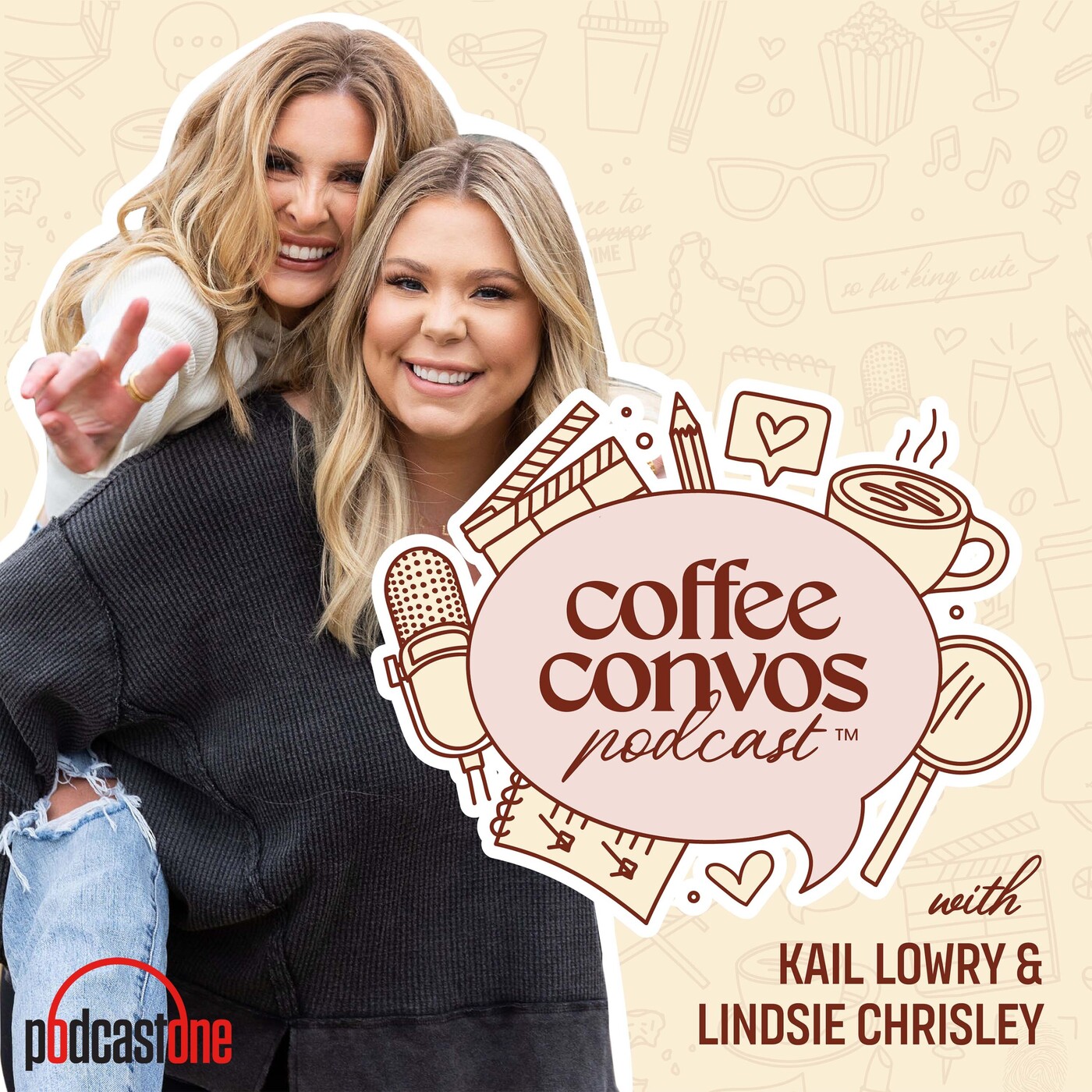
Babbles Nonsense
Welcome to my verbal diary where I want to discuss any and all things that is essentially on my mind or have wondered about. Sometimes I will be solo and then other times I will have some amazing guests to bring all different perspectives in life. The ultimate goal is to hopefully bring some joy, laughter, inspiration, education, and just maybe a little bit of entertainment. Don't forget to like, rate, and share the podcast with a friend!
Babbles Nonsense
Why Healthcare Needs a Compassionate Revolution
#165: Discover the raw realities of emergency room life, inspired by the HBO show "The Pitt." In this episode, I dive deep into the challenges of the healthcare system while exploring personal stories from my years as an ER nurse. Through real-life experiences, we highlight moments that shaped my understanding of care, compassion, and the burdens faced by healthcare professionals daily. As we unpack the emotional weight of nursing, we delve into essential discussions about administrative hurdles, patient satisfaction surveys, and the ongoing crises surrounding insurance that overwhelm emergency rooms.
Get ready to engage with thought-provoking topics surrounding healthcare’s intricate landscape. Between personal anecdotes and reflections from the field, listeners will gain valuable insights into why compassionate care cannot be overlooked and how the healthcare system must adapt to better support its workers. By weaving together my journey with broader discussions about healthcare, this episode calls for mutual understanding and advocacy for both patients and healthcare professionals. Join the conversation as we explore the human elements of care and seek pathways for change. Tune in, reflect on your experiences, and let's journey together towards a more compassionate future in healthcare – remember to subscribe, share, and leave your thoughts!
You can now send us a text to ask a question or review the show. We would love to hear from you!
Follow me on social: https://www.instagram.com/babbles_nonsense/
What is up everyone? Welcome back to another episode of the Babbles Nonsense podcast. On today's episode, I am going to kind of take it back a little bit and talk about healthcare and the healthcare crisis we're somewhat in. If you don't believe that, then maybe this isn't the episode for you, or maybe it is. Maybe I can change your mind. But I started watching a new show called the Pit. It's about ER doctors on HBO and it just kind of inspired me to talk about my ER days, because I don't really do that often. I've had Dr Solis on before and we sat down and kind of shared some stories but never really just talked about experiences. So if you're interested in that, that is what today's episode will be about. So so all right, guys.
Johnna :So, like I was saying in the intro, I started watching this new show called the Pit on HBO and it's mostly about ER doctors. Um there's, it's probably one of the most realistic medical shows that I have seen thus far. I mean, we all know Grey's Anatomy is way out there, like we watch it for the drama, but it's just not realistic. But this one, I would say pretty much realistic. In the hospitals that I've worked at it's more nurse driven. I'm not saying like obviously there's I mean obviously there's doctors there, but there's a lot more nursing care and nurse driven factors that go into a lot of medical work that I don't feel a lot of medical shows really relay, but this one does, and I think because it's like a teaching hospital, that's why there's more like residents and stuff like that. So it's, it does. It does make it realistic.
Johnna :But the reason why I wanted to talk about it is because I haven't really sat down and just done a podcast about my experience in healthcare and nursing and whatnot. So I was like why haven't really sat down and just done a podcast about my experience in healthcare and nursing and whatnot? So I was like why haven't I done that yet? And initially, when I started this podcast that's what it was it was during COVID and I just really needed an outlet to put my frustrations or be like quote unquote, a verbal diary and I was like I'm going to start a podcast and start talking about all these things. Then, when it came down to doing that, it was just like freeze moment. And then it pivoted and I started interviewing all my friends, like my female friends who owned businesses, which was great, like I loved it and I still love interviewing people. It's probably one of my better things to do than sit down on a solo podcast. I just do better with bouncing ideas and topics and whatnot off of people. But that's initially why I did want to do the podcast.
Johnna :So I know I've had Dr Salise on before. He's one of my good friends and we've sat down and kind of talked about his experience as a doctor in the ER and I shared a few of my stories as well. But let's take it all the way back. Let's just go all the way back why I got into nursing in the first place. So if you've listened to, if you're a regular listener and you've listened to episodes with me and menu, then you'll know, like a few episodes back when we talked about toxic relationships, most nurses have codependency, I feel like, and maybe if you're listening to this in your nurse, you would disagree. But I think we have codependent issues and I think that's sometimes why we go into this. Now some people I feel are really called into going into this like that. You really truly go into it caring about people, which I did.
Johnna :I started and I was very fortunate I was from a very small town but our high school had like nursing courses so we would go to a nursing home and kind of help the nurses out, like kind of just assist them. And there was just one patient in particular that the nurses were like, just don't even go in his room, he's not nice, he doesn't like anyone and of course I'm stubborn, I want some. You know. I'm like, oh, he'll like me. You know. That's just see, now that I'm doing this, sometimes podcasts are therapeutic. I'm like that's where it came from, I'm going to get him to like me anyways.
Johnna :Um, so I went into this patient's room and he had garbled speech at baseline, like couldn't really talk to you and kind of he was a dementia patient, so baseline, just like a toddler level communication skills, right. So he had like all these like toddler toys in there. But the nurses warned me, they were like, well, just be careful, like he throws things at people. And so I remember going in there and just talking to him and trying to have a conversation and he, you know, he obviously couldn't really say, I mean, whatever he would say. It was kind of incomprehensible. But I noticed that we shared the same birthday, like in November. Like I just noticed that we had the same month, same day on his bracelet. So I was like, oh my gosh, we share the same birthday.
Johnna :And he kind of just looked at me and Then he was like saying something that I wasn't sure he was saying and I think it was like get my piano, cause he had this like little child piano and I got it for him. I was like do you, do you want to play the piano? So he starts playing this piano, which has automatic buttons on it, like you know, twinkle, twinkle little star and stuff like that. So he hit, he hit that one and I just started singing for him. I'm winning him over. I got this.
Johnna :So that's when my first initial was like I like this, I kind of like that, this tough patient, when really in my eyes, like what I learned was he just wanted someone to give him attention and to listen to him, and I think that's what it was and like so the other nurses just assumed that he was just mad or being mean because he would throw stuff, but I think it was more so that he just wanted attention and needed someone to be there and try to understand or whatnot Maybe could be wrong. That's just what I got from it. But it was funny because, as we're like I'm actually getting along with this patient that literally likes none of the nurses and a nurse walks in to hand him his lunch and he throws the piano at her and he's like get out. So I was like, okay, so he does like me. So that's that's when I was like I really think I want to get into nursing. I liked that feeling of giving someone compassion and, you know, trying to listen to them and fulfill their needs and stuff like that, which, again, to me that's codependency. But maybe I'm, maybe I'm off.
Johnna :So it started at a young age, wanted to do that, went into nursing, all the things right. So I landed in the ER very busy ER in 2011. And I stayed there, gosh, till 2016 2016, when I graduated with my nurse practitioner, and then I did one stint of trauma at Vanderbilt and then I ended up coming back later, like six months later in 2007. I stayed a year at Vanderbilt but then I came back as needed like PRN as a nurse practitioner in 2017. So basically, from 2011 till 2022 was my nursing career, was ER. So I did ER trauma ICU, just because I think my ADD brain works better that way, cause I can just, you're not seeing the same thing every day. You are, um, getting to see, experience, different things, so my brain likes that. Sorry If you hear my dog barking in the background, she is barking out the window, um, but yeah. So working in the ER was, it was great, I liked it, I liked the work, I liked what I did.
Johnna :But with any job, you know there's different administration difficulties where your you know policy doesn't really make sense or you're overworked, underpaid. I feel like that could be in any industry, but it seems to be the most in healthcare. Like, okay, for example, comparing healthcare to Walmart, you know, like, if you're at Walmart and there needs to be budget cuts made, like if you need to cut cashiers, yes, that's annoying to have to only have two cashiers to check out your groceries, but it's not life or death, right. But when you're in healthcare, when you're cutting, when you have to make budget cuts and you're cutting nursing staff but the patients still keep piling up, logically that doesn't make sense. But like, at the end of the day, healthcare is still a business and I think we all forget that. I think we forget that hospitals have to stay open, like or to stay open. They have to have profit. They have to be able to make money to keep the lights on, to, to pay the bills, to get the medical supplies, to take care of the patients, to supply, you know, the ancillary staff, the nursing staff, the doctors, stuff like that and we all think, oh well, this is healthcare, we should have it, it should be a right and it should, but at the end of the day, the thing that we forget about is it being a business.
Johnna :So going to this like watching this show that I just started watching this past weekend, that's kind of what it's all about. It kind of shows the good, the bad and the ugly. It shows like how people, it shows like new residents. It shows like an old doctor that's been there for a long time and how he has flashbacks of certain things that you know give him trauma and scare him as an ER doctor. It shows how busy and crazy it gets in emergency rooms and how it's like a nationwide crisis. And it shows admin coming down and being like y'all need to get these patients out faster, you need to get your patient satisfaction scores up, and all the things that patients don't really realize go into healthcare, especially like I'm speaking from an emergency room standpoint. So let's let's go over those things a little bit.
Johnna :So there's things called patient satisfaction scores, where once you leave the hospital or ER visit, you get a lot of patients, get surveys saying like was your pain controlled, were, you know, was your call I answered in a timely manner, things like that, which I understand, but at the same time it's frustrating because if you're in an emergency room and let's say, this nurse has five patients right, a nurse has five patients you wouldn't think that that's a lot. But let's say two of those patients are traumas, like one's coming in, they're having a stroke. The other one's coming in, they're a level one trauma, very critical, needs a lot of attention. And then the other three patients they're sick but they're not like critical, so they can stand to sit there for a little bit longer, right? So if one of your non-critical can stand to sit there a little bit longer, is on the call light, but you're in the room with your trauma patient because your doctor needs you to start an IV so that they can intubate. You need to get to CAT scan to make sure they don't have a head bleed and then you need to get to your trunk, your other room, because this patient's having stroke like symptoms, and they also have a door to dock time or not door to dock, but door to CT time, because time is valuable when it comes to strokes and heart attacks and things like that.
Johnna :Then this patient that's been on the call light for, let's say, 30 minutes and all the other nurses are in their rooms, right, so let's say nobody could go in there. Let's say all this patient wanted was a sandwich, because that happens a lot. Then that patient gets a survey and then they're like was your call bill answered in a timely manner? And they say no. Well, a lot of people don't realize that hospitals are reimbursed based on these surveys. So if the hospital's not getting reimbursement because patients aren't satisfied, we're not even looking at what they're not satisfied about. It's not that they're not satisfied with their care, it's not that they're, you know, not satisfied with certain things. It's that these mandated surveys that people just really don't understand. That there's a lot to them and I understand. I also understand the other perspective from the patient side, where it's like well, if you're the patient, you really want to feel valued and you want to feel cared for and I completely understand that.
Johnna :But when we're in emergency type situations, we have to be a little bit more patient and we have to be a little bit more understanding that we're not standing in line at a grocery store because there's two cashiers. So I hope that analogy makes sense. So that's one of the things, and then the other things is the insurance crisis that we have. We have insurance companies that are just skyrocketing insurance and people can't afford it. So a lot of people who can't afford the insurance or it's the coverage just isn't there, or you know they don't want to wait, like maybe their doctor can't get them in for two weeks, and you know to them what they're experiencing is an emergency, because they're in pain or they don't know what's going on and they're scared. And you get on Google or you get on WebMD and it tells you all these bad things.
Johnna :So you go to the ER or you use the ER as your primary care physician. Then the ER is completely overloaded and so sometimes people forget, when you go to the ER, that it's not a first come, first serve basis. It's based on acuity. Get when you go to the ER, that it's not a first come, first serve basis. It's based on acuity and so that means that the sicker you are, you're going to be seen first, and I would hope that someone would want that for themselves and for their family members, should that ever occur or ever have to happen in your life. So the show kind of like mimics all that right. Like the show shows this. It shows administration coming down telling the doctor like you don't have your patient satisfaction scores up enough, but he's like okay, but how many lives did I save today? You know like he and he has to have these difficult conversations with people about do not resuscitate orders on someone who's you know the first time he's meeting them, or he's having to have conversations about organ donation for young children that passed away on drug overdoses.
Johnna :So I think there's just more to health care than people realize, and I do think that it's because we need to start looking at political stances on it. I think we need to start looking at what our state representatives and, you know, federal representatives are saying, their policy is or what they're leaning towards, because there should be some type of regulation on how much insurance can charge or who can dictate the care, because it almost seems like insurance companies dictate care over what doctors can do. For instance, I, you know, one of my jobs is I go to assisted livings as a primary care physician, to their, to their home, so that they don't have to come to a place. And when I used to work in the ER, I was like whenever we would get assisted living patients, I was like why are they here for just this? Non, like this, this isn't an ER thing side of it where there's no resources, especially on the weekends, or, you know, you can't get stat labs, you can't get stat imaging and you and you're not sure kind of what's going on then sometimes we have to send out to the ER to get things done right. Then, which is also a bit it's abuse of the system. Just because I'm not well, I don't know if it's abuse of the system, but it's like wrecking the system because those things could be handled outpatient if we had more resources or more availability, if I'm saying that right.
Johnna :But anyways, when I was watching the show, it just kind of like I guess there's a lot in me that there's still some PTSD because I just was eating breakfast watching the show and it wasn't anything like gruesome or crazy and I just immediately just started crying out of nowhere and I was just like, okay, there's some pent up trauma there that I really need to work through with me and you probably. But it's a really good show, I really recommend it. I'm not going to get into like crazy stories. I'm like I've seen some crazy stuff working in ER and trauma obviously, but obviously I mean you forget them Like I walk around. You know it's just like you have to do that, like that's what you have to do for your job. Like yes, I saw, I probably saw someone die every single shift that I worked and and it just became normal. Like I said, I did it for 11 years, so it became normal. I'm not saying it is normal, it just became normal which kind of then bled over into my personal life where it became like the stoic, like don't really have emotion, don't really know how to show emotion, because at that job you have to just turn it off. Because if you become emotional after every experience with a patient, then how are you going to take care of the next one? And it's a 13 hour shift, you know and then go like going through other things, like a lot of people don't realize is like. There's a like right now.
Johnna :I think what's going on a lot in the in the news right now is like nurse abuse and how real that is. I couldn't tell you how many times I've been cussed at, spit at, kicked, hit and we're told like you don't, you don't say anything back, you don't do anything back and I don't know any other place of quote unquote business. Or you know, if you're at Walmart or if you're you know a department store, if you start spitting at the cashier and cussing at them and hitting at them, security is going to haul you out. But unfortunately in healthcare we can't haul you out. Because what if something is critically wrong with you and it's a life or death situation? Then we just told you to leave the hospital and then we're liable for your health. So that part like but we should also have stricter laws Like, if you abuse nurses, then it should be like a stricter thing.
Johnna :Or you know what, by God, like they should, like you should be like if you hit them, that you know they have the right to defend themselves. Just like, if you come into my home and you start swinging, I have the right to defend myself in my home. If you come into my place of work and start abusing me, then we should have the right to defend ourselves. If it got to that level like hopefully it wouldn't, but it is real Nurse abuse is real, and not to mention all the things that nursing and doctors go through, where, when you're working these long shifts critical you know you're not going to the bathroom like you want, you're not drinking water like you should you barely have time to eat. If you do eat, it's within five minutes between patients and it's just like. And again they're like like.
Johnna :I loved it. I'm not sitting here complaining, I'm just saying I think there's a lot to it that people don't realize behind the scenes type thing, and the show really does show that very well. Um, so I would love everyone to go watch it just because it just shows like it's realistic, it's really truly what happens in your nearest hospital, your community hospital. But I think I'll end it right there Again. I love what I do. I'm not complaining. I know a lot of that's what a lot of people would say was well, that's what you signed up for. No, I know Like I signed up to.
Johnna :You know care for people and do things that are right, but there also should be enough employees and staff to be able to provide bathroom breaks, to provide lunch breaks, to provide you know, in a minute just to take care of your mental health and so that you can be at the best level of yourself and you can continue to give that quality care that's needed in health care. Because it is needed because those people are the most vulnerable. They feel, feel scared. Even if it's not something critical at that moment, they feel it's very important to them and they're scared. So we should be able to provide that care. And burnout is real, like burnout, like and I'm not saying it's right Me and my friends have had these discussions I know I said I was going to end it, but I had another thought.
Johnna :Me and my friends have had these discussions where, like to give that true compassionate care, like you know, you have to be able to, you have to have some, you have to have something in your fuel tank to give, like you can't drive a gas on empty and you can't give compassion when you're depleted. And we have to start taking care of our healthcare workers and we have to start truly empathizing with them, and the first time I ever saw that happen was truly during COVID, like when the all the hospitals were just overran with patients and it's still that way, like that was not new. Just because there was a virus Now it made it worse, but that's how it's always been and it was the first time it was ever televised on how overran the healthcare system is. And then you would see, you know a lot of banners like healthcare workers are heroes and people would send pizzas for them to eat. And it felt like for that moment, like wow, people actually are seeing our profession and they're saying we really need to start treating healthcare workers better.
Johnna :But then it was like it was like a fleeting moment in time and it just after COVID. It was like okay, well, let's go back to what it was, and I just think it needs to be looked at and I think we can do our part by when, when you are in that situation, just be patient with your healthcare provider. Like I'm not saying when you go to the ER, like if you feel like something is wrong, advocate for yourself. We all have to advocate for ourself and I'm not trying to deter anyone from going to an ER, because I'm clearly not assessing you and I don't know if you're having an emergency and if you feel like you're truly having an emergency, then go to an emergency room and advocate for yourself. But I think we also need to be understanding and be compassionate because of the things that go behind the scenes. So go watch that show. It's called the Pit. It's on HBO. It really just gives a great like visual and realistic medical show to watch. And until next time, guys, bye, thank you.









